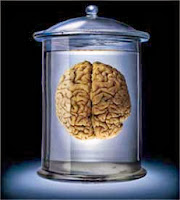Many factors go into whether a person becomes addicted to something, including but not limited to genetics and their environment. Some people seem to be prone to addiction than others, and some things are more potentially addictive than others. Since everyone’s on the internet all the time, it makes sense that people are nervous about internet addiction.
But there a competing theories about what addiction even means. An article in internet addiction in Scientific American defines addiction, loosely, as “a disease of the brain that compels someone to obsess over, obtain and abuse something, despite unpleasant health or social effects.” The key word there is “disease.”
Another definition of addiction describes it as increased behavior despite increasing consequences. Note the difference. Rather than focus on compulsion and the nomenclature of disease, this definition focuses on behavior and consequence. It’s a subtle but necessary point: you can have a disease and not know it. Or you can do things that are bad for you but not know why.
So what? So, which definition do you use if you want to treat your so-called addiction, the why or the what? A recent study shows that in people who have self-reported internet addiction, there are physical differences in the brain. So do we find people with altered brains, and yank them off the internet? Or do we look for people who shun their family, friends, work, and other obligations, and toss ‘em in an MRI to see how their brains look, letting the ones go who have “healthy” dorsolateral prefrontal cortexes?
The reason we need to be careful with slap-dash diagnoses of “addiction” is that too broad a brush paints too many, and too fine a brush misattributes otherwise peculiar behaviors. Consider a study done on London Taxi drivers, which show that those who successfully obtain “The Knowledge” (a working mental map of London’s serpentine streets) have a somewhat larger rear hippocampus and a somewhat shrunken frontal hippocampus. Are we going to call them study-addicts and start taking more busses and subways?
The internet is just like anything else—a tool to obtain the things we want. If what we want requires sitting in front of a computer for ten hours a day, six days a week, its probably not the interntet—or your brain—that’s the problem.
But if you’re still worried, why not try a few brain training games, and exercise your mind.
But there a competing theories about what addiction even means. An article in internet addiction in Scientific American defines addiction, loosely, as “a disease of the brain that compels someone to obsess over, obtain and abuse something, despite unpleasant health or social effects.” The key word there is “disease.”
Another definition of addiction describes it as increased behavior despite increasing consequences. Note the difference. Rather than focus on compulsion and the nomenclature of disease, this definition focuses on behavior and consequence. It’s a subtle but necessary point: you can have a disease and not know it. Or you can do things that are bad for you but not know why.
So what? So, which definition do you use if you want to treat your so-called addiction, the why or the what? A recent study shows that in people who have self-reported internet addiction, there are physical differences in the brain. So do we find people with altered brains, and yank them off the internet? Or do we look for people who shun their family, friends, work, and other obligations, and toss ‘em in an MRI to see how their brains look, letting the ones go who have “healthy” dorsolateral prefrontal cortexes?
The reason we need to be careful with slap-dash diagnoses of “addiction” is that too broad a brush paints too many, and too fine a brush misattributes otherwise peculiar behaviors. Consider a study done on London Taxi drivers, which show that those who successfully obtain “The Knowledge” (a working mental map of London’s serpentine streets) have a somewhat larger rear hippocampus and a somewhat shrunken frontal hippocampus. Are we going to call them study-addicts and start taking more busses and subways?
The internet is just like anything else—a tool to obtain the things we want. If what we want requires sitting in front of a computer for ten hours a day, six days a week, its probably not the interntet—or your brain—that’s the problem.
But if you’re still worried, why not try a few brain training games, and exercise your mind.

No comments:
Post a Comment